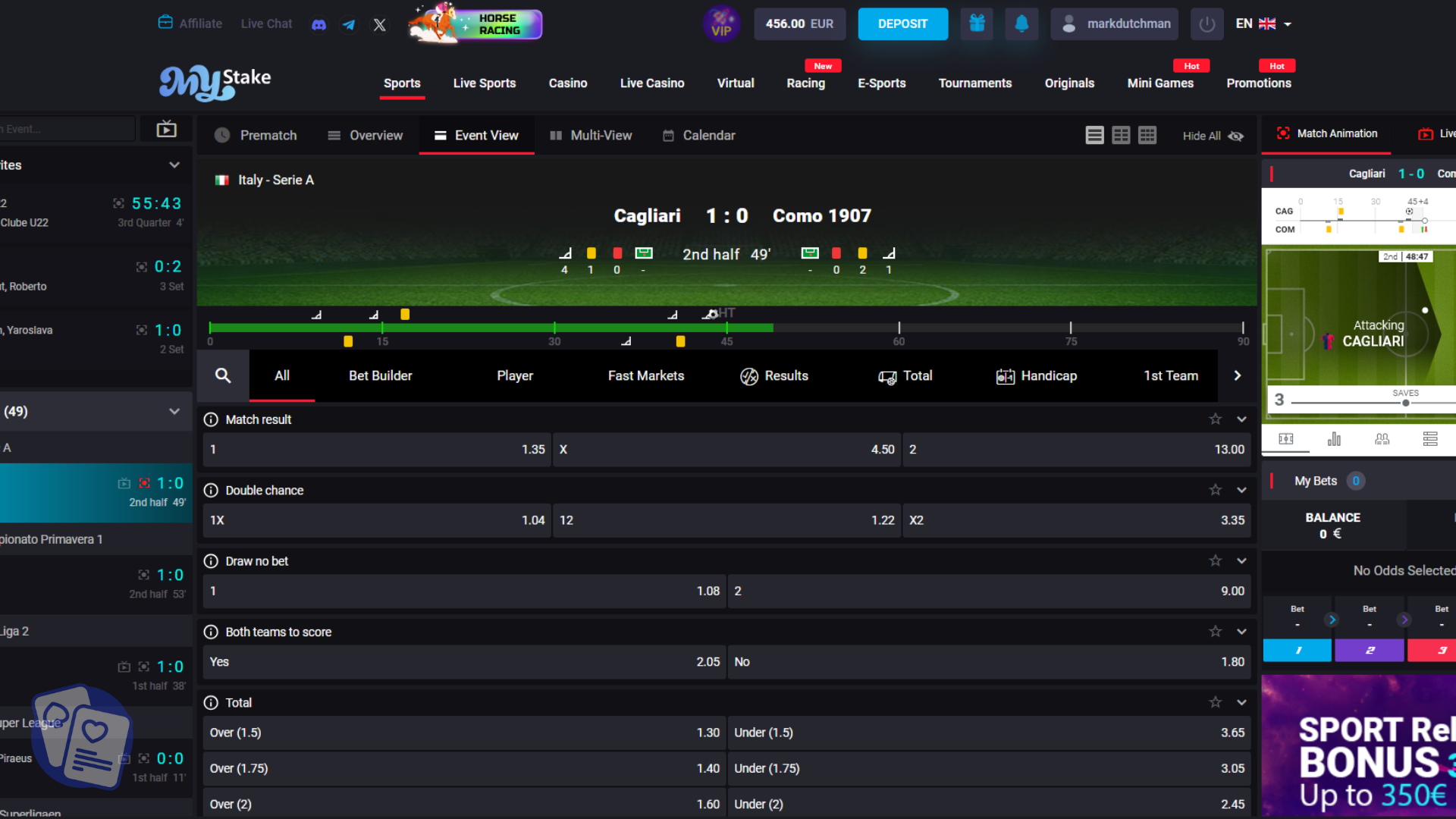Choosing the right sportsbook can be the difference between a winning season and a frustrating fumble. That’s where sportsbook reviews come in. But not all reviews are created equal. Some are as exciting as watching paint dry, while others are just biased or overly promotional without any actionable intelligence.
So how do you craft a review that’s not only informative but also engaging, trustworthy, and downright helpful?
That’s exactly what we’re here to explore. In this article, we’ll give you 7 powerful tips to make your sportsbook reviews magnificent. Whether you’re a seasoned sports bettor looking to share your insights or an aspiring affiliate marketer aiming to build a loyal following, these tips will equip you with the tools to create reviews that stand out from the crowd.
1. Know Your Audience
Understand the interests and preferences of your target readers, otherwise, you can’t even begin to write a comprehensive outline, let alone the whole review.
Like bookmakers have a KYC requirement, bookmaker reviewers need to have a KYA requirement.
Before you even start writing, it’s crucial to know who you’re writing for. Are your readers seasoned sports bettors looking for advanced strategies, or are they casual fans dipping their toes into the betting world for the first time?
Understanding your audience’s interests, preferences, and level of expertise will help you tailor your reviews to their specific needs. You wouldn’t explain the intricacies of a parlay bet to someone who’s just learning the difference between a point spread and a moneyline, right?
Once you know your audience, adjust your language and tone to match. If you’re writing for experienced bettors, you can use more technical jargon and dive into complex betting strategies. But if you’re targeting beginners, keep it simple and explain things in plain language.
Remember, your goal is to inform and educate your readers, not confuse them with overly complicated explanations. Keep it conversational, engaging, and accessible to everyone.
2. Go Beyond the Odds
Don’t just focus on the betting lines and markets.
Sure, odds and markets are important, but they’re not the only factors that make a sportsbook great. To write a truly comprehensive review, you need to go beyond the basics and evaluate the overall user experience.
Consider the sportsbook’s interface – is it intuitive and easy to navigate? How about the mobile app – does it offer a seamless betting experience on the go? These factors can significantly impact a bettor’s overall satisfaction, so don’t neglect them in your reviews.
User experience is the most important thing for many bettors. If they read your largely positive review, sign up, make a deposit, and place their bets only to find out that the verification process takes ages, withdrawal pending time is 48 hours, and the limit is a meager $1000 per week, they are not reading another review on your site. Sure, you told them PayPal isn’t available but Skrill is, which they were fine with. But you didn’t tell them about other things that are equally, if not more, important.
Think from the point of view of your reader. What do they really want to know?
Put yourself in the shoes of a bettor and explore the sportsbook from their perspective. Is the registration process smooth and hassle-free? Are deposits and withdrawals quick and convenient? Does the sportsbook offer live streaming, in-play betting, or other exciting features?
3. Test the Waters
Sign up and explore the sportsbook firsthand.
There’s no substitute for firsthand experience. Before you start writing a review, roll up your sleeves and dive into the sportsbook yourself. Sign up, make a deposit, place a few bets, and explore all the nooks and crannies of the platform.
This hands-on experience will give you valuable insights that you simply can’t get from reading about the sportsbook online. You’ll get a feel for the user interface, the betting process, the customer support, and the overall vibe of the platform.
Once, we were doing a large project where we had to cover a couple dozen sportsbooks operating in Europe. There were names there that checked all the boxes on the surface. Payment methods, solid customer support, thousands of events to bet on, top-notch security, operating for 10+ years, and some of the best promotions we had ever seen. But it was only when we tested the platforms that we found out about the finer details. The bet slip in one of the platforms was not properly optimized, for example. It was pushed down due to the live streaming box and another box that displayed other ongoing matches in a rotation. Both those things are important, but that doesn’t mean you will push down the bet slip itself! Building a bet of 3 or more selections was a nightmare as you had to scroll down to check the selections, and scroll up again to the live match details to check the updating odds. All this while the game was unfolding in real-time. We gave it 4/10 for user experience.
Long story short, using the platform will tell you whether it’s clunky, dated, or glitched in any way. And that’s a goldmine. Make that information the star of your review, and the reader will thank you (and choose a better bookmaker to bet on).
Share your personal experiences and insights.
Once you’ve explored the sportsbook, share your personal experiences and insights in your review. Did you encounter any hiccups during the registration process? Were you impressed with the speed of withdrawals? Did you have any memorable interactions with customer support?
These personal anecdotes add authenticity and credibility to your reviews. They show your readers that you’ve actually used the sportsbook and can offer genuine insights based on your own experience.
Withdrawal speed, verification time, and easy deposits might be more important for many bettors than knowing that there are 3000+ events to bet on compared to 2500+ on another sportsbook.
4. Be Objective & Thorough
Highlight both the strengths and weaknesses of the sportsbook.
No sportsbook is perfect. Each one has its own unique strengths and weaknesses. A good review acknowledges both, providing a balanced and objective assessment of the platform.
Don’t be afraid to point out areas where the sportsbook could improve. Maybe the odds aren’t as competitive as other platforms, or the mobile app could use some fine-tuning. It’s not rare for operators to rely on outsourcing customer support to overseas companies that handle the support for scores of platforms. In turn, they are egregiously slow in replying to even the most basic questions specific to your experience on the sportsbook.
If you don’t test, you won’t know this. And if you don’t know this, your reader won’t know it. And that’s bad for business. They will probably find your reviews untrustworthy and move on.
Also, make sure you disclose any potential conflicts of interest so that your readers can make informed decisions based on all the available information. This builds trust and credibility, which are essential for establishing a loyal following.
5. Provide Actionable Information
Offer tips and strategies for using the sportsbook effectively.
Don’t just tell your readers about the sportsbook; show them how to use it to their advantage. Offer practical tips and strategies for using the platform, placing bets, and maximizing their chances of winning.
This could include anything from explaining different bet types and odds formats to sharing insights on specific sports or leagues. The more actionable information you provide, the more valuable your reviews will be to your readers.
During one test, we found that the odds, when they would update, would flash. This was quite distracting because when you are on the main dashboard, you’re seeing the odds for multiple games. You will then choose which odds to bet on. But if they all flash, you will be distracted more often. And there was actually a setting to turn this off. So, we went through this problem and tried to find a solution. If there was no solution, this would go in our review as a bad bit of UX. But as there was a way to turn this off, we just went ahead with a comment that this can be turned off if you’re getting constantly distracted. The UX rating suffered a minor 0.3 setback, and the readers had an actionable tip.
The idea here is to help readers make informed decisions about their betting choices.
Your reviews are more than just entertainment; they’re a tool that helps readers make informed decisions about their betting choices. Provide them with the information they need to choose the right sportsbook for their needs and preferences.
Consider including a comparison table that highlights the key features of different sportsbooks. You can also offer recommendations based on specific criteria, such as best odds, best mobile app, or best customer support. And whenever possible, draw comparisons with other sportsbooks that also operate in the same market. You might not want to do this every time, but to build a loyal following, it’s kind of important.
6. Keep it Fresh and Relevant
Stay up-to-date on the latest sportsbook news and promotions.
New sportsbooks are launched, existing ones update their features, and promotions come and go. To keep your reviews relevant, you need to stay on top of the latest news and trends. The more informed you are, the better equipped you’ll be to provide accurate and up-to-date information to your readers.
You also need to update your reviews regularly to reflect any changes.
Don’t let your reviews gather dust. As sportsbooks evolve, so should your reviews. Revisit your existing reviews regularly and update them to reflect any changes in features, promotions, or user experience.
This shows your readers that you’re committed to providing the most current and accurate information, which will help you build trust and credibility.
7. Inject Personality
Let your passion for sports shine through in your writing.
If you’re a sports fan, let that passion bleed into your reviews. Share your excitement for the games, your insights into the teams and players, and your love for the thrill of the bet.
Your enthusiasm will be contagious, drawing readers in and making them feel like they’re part of the action. Don’t be afraid to express your opinions, share your predictions, and even crack a few jokes along the way.
Use humor and anecdotes to keep readers engaged.
Humor is a powerful tool for engagement. A well-placed joke or witty observation can break up the monotony of a review and keep readers entertained. Share funny anecdotes from your own betting experiences, or poke fun at some of the absurdities of the sports world.
Just remember to keep it lighthearted and respectful. Avoid offensive language or jokes that could alienate your readers. The goal is to create a fun and engaging experience, not to offend or alienate anyone.




